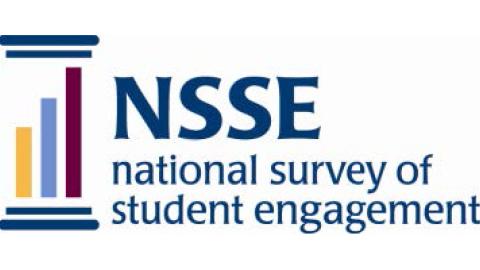NSSE Overview
What is student engagement?
Student engagement represents two critical features of collegiate quality: (1) the amount of time and effort students put into their studies and other educationally purposeful activities; and (2) how the institution deploys its resources and organizes the curriculum and other learning opportunities to get students to participate in activities that decades of research studies show are linked to student learning.
What does NSSE do?
Through its student survey, The College Student Report, NSSE annually collects information at hundreds of four-year colleges and universities about first-year and senior students' participation in programs and activities that institutions provide for their learning and personal development. The results provide an estimate of how undergraduates spend their time and what they gain from attending college.
NSSE provides participating institutions a variety of reports that compare their students' responses with those of students at self-selected groups of comparison institutions. Comparisons are available for all individual survey questions and for:
Engagement Indicators
Theme | Engagement Indicators |
|---|---|
Academic Challenge |
|
Learning with Peers |
|
Experiences with Faculty |
|
Campus Environment |
|
High-Impact Practices
High-Impact Practices |
|---|
|
What is the survey about?
Survey items on The College Student Report represent empirically confirmed "good practices" in undergraduate education. That is, they reflect behaviors by students and institutions that are associated with desired outcomes of college. NSSE doesn’t assess student learning directly, but survey results point to areas where colleges and universities are performing well and aspects of the undergraduate experience that could be improved.
How are survey results used?
Institutions use their data to identify aspects of the undergraduate experience inside and outside the classroom that can be improved through changes in policies and practices more consistent with good practices in undergraduate education. This information is also used by prospective college students, their parents, college counselors, academic advisers, institutional research officers, and researchers to learn more about how students spend their time at different colleges and universities and what they gain from their experiences.
More than 1,500 different colleges and universities in the US and Canada have participated in NSSE since it was first administered in 2000.
Last Updated: 12/18/2020 12:43
